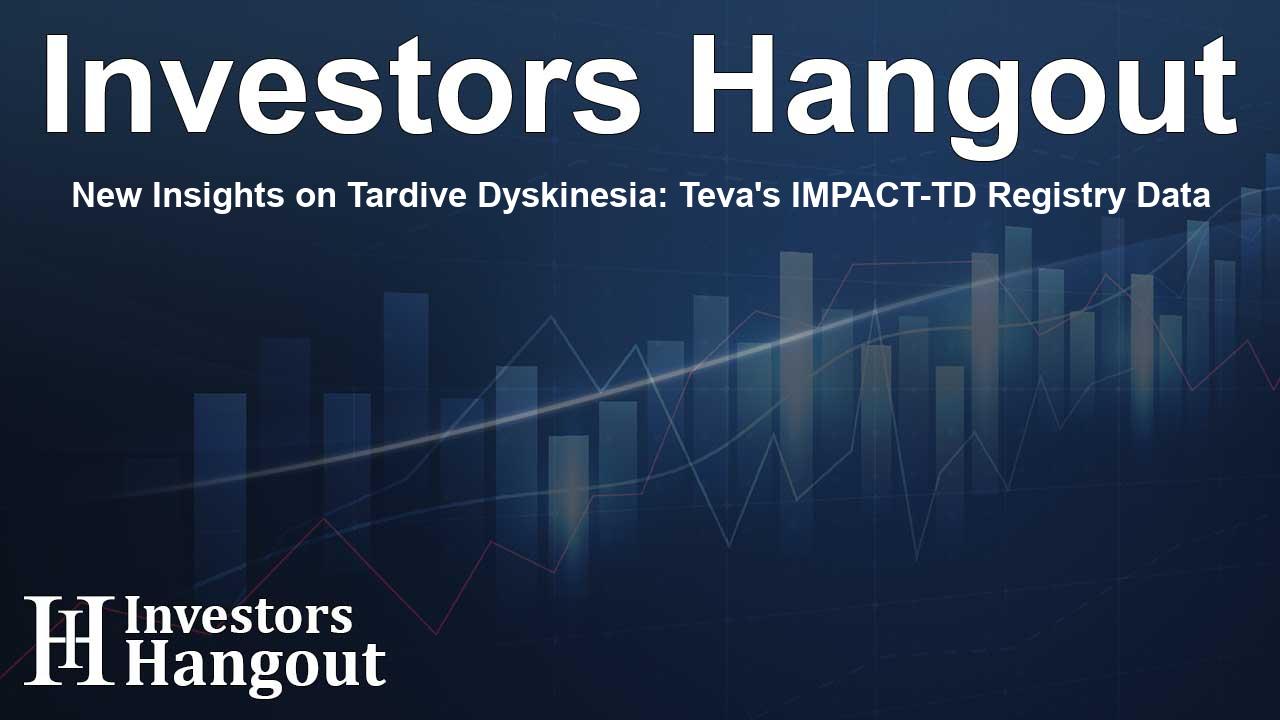New Insights on Tardive Dyskinesia: Teva's IMPACT-TD Registry Data

Teva Pharmaceuticals and the IMPACT-TD Registry
Teva Pharmaceuticals recently announced significant findings from the Phase 4 IMPACT-TD Registry study, shedding light on the experiences of patients suffering from tardive dyskinesia (TD). As the largest evaluation of TD conducted, the registry aims to provide a comprehensive look into how this condition affects individuals with varying psychiatric backgrounds. This study highlights the importance of addressing TD's impact on quality of life, irrespective of the patient's mental health condition.
Understanding Tardive Dyskinesia and Its Effects
Tardive dyskinesia is a complex chronic movement disorder, often resulting from prolonged use of certain antipsychotic medications. It can manifest as uncontrollable, repetitive movements that significantly disrupt daily activities, leading to both physical and psychological challenges. According to the recent findings from the registry, TD significantly burdens one’s quality of life, warranting attention from both healthcare providers and patients alike.
Survey Insights on Patient Experiences
The interim data reveals notable differences among patients based on their psychiatric conditions. For instance, it was found that 50% of patients with mood disorders were diagnosed with TD compared to only 36% of those with psychotic disorders. This discrepancy emphasizes the need for increased awareness and monitoring of symptoms in different patient populations.
Demographic Findings from the IMPACT-TD Study
One of the remarkable aspects of the IMPACT-TD study is its demographic insights. It showcased that patients with psychotic disorders tended to be younger on average and were more likely to be male or identify as Black or African American compared to patients with mood disorders. This knowledge could be critical in tailoring treatment and monitoring strategies effectively.
Impact on Quality of Life
Despite the differences in diagnosis rates, the perceived impact of TD on the quality of life appeared similar across both groups. An overwhelming majority of clinicians reported substantial negative effects on the daily functioning of their patients, underscoring the urgency for appropriate care strategies.
Moving Towards Better Treatment Solutions
Teva remains committed to improving mental health treatments and intends to utilize real-world data from initiatives like the IMPACT-TD Registry. This work aims to optimize the efficacy of treatments like AUSTEDO XR and AUSTEDO, which have shown promise in alleviating TD symptoms in patients. Preliminary results from a patient survey indicate high satisfaction rates regarding the usability and effectiveness of these medications.
The Importance of Early Detection and Treatment
Recognizing and addressing tardive dyskinesia early is critical. As Rakesh Jain, a clinical professor of psychiatry, pointed out, increased use of antipsychotic medications has led to a higher incidence of TD. Monitoring and diagnosing patients for TD symptoms early can lead to more effective treatment interventions, ultimately improving quality of life for those affected.
Future Directions in Research and Treatment
The continuum of care for patients with TD must incorporate ongoing research and patient feedback. The results from the IMPACT-TD study may guide future therapeutic approaches, offering a structured path to enhanced patient outcomes. Teva’s dedication to exploring mental health challenges showcases an active commitment to finding effective solutions for those suffering from conditions like TD and Huntington's disease.
Frequently Asked Questions
What is tardive dyskinesia?
Tardive dyskinesia is a chronic movement disorder characterized by involuntary, repetitive movements, often caused by long-term use of antipsychotic medications.
How does the IMPACT-TD Registry contribute to understanding TD?
The IMPACT-TD Registry gathers patient-reported outcomes, allowing researchers to assess the broader impact of TD on daily life and treatment effectiveness across diverse psychiatric populations.
What were the key findings regarding patient demographics?
The study revealed notable differences in demographics, particularly showing that patients with psychotic disorders were younger and had differing racial backgrounds compared to those with mood disorders.
What treatment options are available for managing TD?
Current treatments include AUSTEDO XR and AUSTEDO, both of which are approved for the management of TD and have shown effectiveness in improving patients’ quality of life.
Why is early detection of TD important?
Early detection of tardive dyskinesia can lead to timely intervention, minimizing the disorder's impact on physical and mental health and improving treatment outcomes.
About The Author
Contact Lucas Young privately here. Or send an email with ATTN: Lucas Young as the subject to contact@investorshangout.com.
About Investors Hangout
Investors Hangout is a leading online stock forum for financial discussion and learning, offering a wide range of free tools and resources. It draws in traders of all levels, who exchange market knowledge, investigate trading tactics, and keep an eye on industry developments in real time. Featuring financial articles, stock message boards, quotes, charts, company profiles, and live news updates. Through cooperative learning and a wealth of informational resources, it helps users from novices creating their first portfolios to experts honing their techniques. Join Investors Hangout today: https://investorshangout.com/
The content of this article is based on factual, publicly available information and does not represent legal, financial, or investment advice. Investors Hangout does not offer financial advice, and the author is not a licensed financial advisor. Consult a qualified advisor before making any financial or investment decisions based on this article. This article should not be considered advice to purchase, sell, or hold any securities or other investments. If any of the material provided here is inaccurate, please contact us for corrections.
